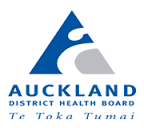In this session, you will learn to:
- Feel confident about the benefits of employing and supporting people with access needs
- Understand how you can champion an inclusive culture and proactively recruit talent with access needs
- Develop an understanding about the effects of unconscious bias and organisational barriers to employment
This session has limited numbers, so register now to avoid missing out!
Who is this for: People Managers and Leaders at all Levels
Time: 9.00am – 12.00pm (morning tea included)
Kia ora, this course will look at the 3 main areas of an accessible workplace; getting to the building, getting around the building and is it fit for purpose.
Who is this for: Facilities and OHS, and others who need this information for their work
Time: up to 30 minutes
Course contact: Adele Edmonds-Woolf (Te Toka Tumai)
Method: eLearning
Frequency: Once
Rangatahi Maori - Unleashing the Potential with Professor Meihana Durie.
Te hiringa matua, te hiringa tangata, te hiringa o te rangatahi
A one day educational workshop for Auckland DHB employees who work with rangatahi/young people aged 12-24 years. Participants will learn current and applied knowledge that will further develop their own cultural competence. "Hiringa" recognises the essential driving force that is necessary to activate and enable Māori potential.
Professor Meihana Durie heads Te Pūtahi-a-Toi (School of Māori Knowledge) at Massey University where he engages in research, teaching and community-orientated work around cultivating transformative outcomes for whānau, and Māori communities.

The Hearing Accredited Workplace Programme provides practical tools and training to help our organisation to become more inclusive of the 880,000+ New Zealanders who are Deaf or hard of hearing.
The programme also teaches you and your team about hearing health in the workplace and how to care for hearing for life.
Here is a library of videos and booklets you and the team can work through to learn about how to support team members or patients & whānau who are Deaf or hard of hearing.
Each module covers an essential topic for hearing awareness in the workplace.
"Nursing has a social mandate to enhance the delivery of health and disability services to Māori and achieve positive health outcomes and health gains"
Nursing Council of New Zealand (2011)
How do nurses fulfil the mandate above, what is the relevance of Te Tiriti o Waitangi, what does it mean to apply its principles in practice and what does competence look like? More importantly, why in their own country, do Māori experience the worst health outcomes in every way health is measured?
With a focus on practical application, the purpose of this course is to interpret the Nursing Council's expectations related to Maori health and Te Tiriti of Waitangi, with the overall aim that nurses identify and maximise the opportunities that present in their everyday practice to improve Maori healthcare experience and health outcomes.
Learning objectives:
- Establish understanding of Māori as the indigenous people of Aotearoa New Zealand
- Examine the origin of Maori health inequities and the ongoing factors that maintain them
- Explore and interpret Nursing Council expectations
- Reflect on current practice and identify own potential to enhance the achievement of positive healthcare and equitable health outcomes for Maori
The assessments of this course are formative:
- Online quiz before Study Day 1
- Written reflection of new insights and understanding and implications for own practice
The expectations of this course are that you will:
- attend 2 facilitated study days (12 hours)
- complete online readings and activities (4 hours)
- share examples from own nursing practice in class
Welcome to the Disability Responsiveness e-learning module.
One in four New Zealanders identify as having an impairment. Impairments can be physical, sensory, intellectual, mental health or may be invisible.
The aim of the course is to increase health professional's knowledge and confidence when working with disabled people by improving communication and challenging assumptions.